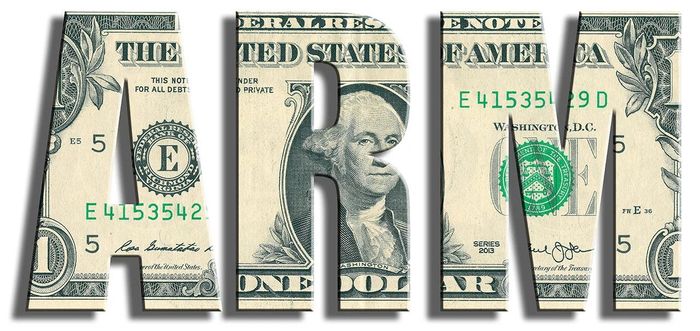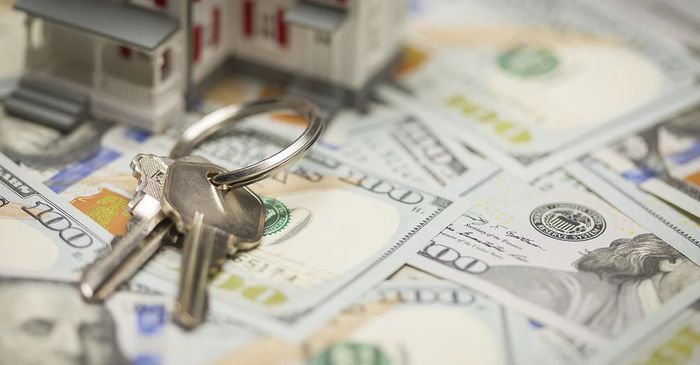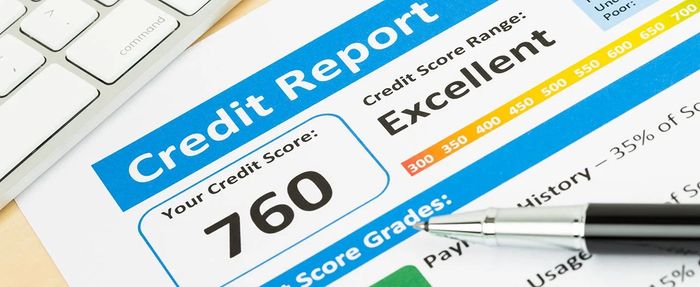Blog
Our News Blog
How Much Is My Home Worth in Wilmington, Illinois
How Much is your home worth in Wilmington, Illinois? If you are planning on selling your home, that is a question you need answered. As your Local Wilmington Real Estate Expert, I can help you to learn the answer to that question. I will personally do the research on your behalf and provide you with a detailed Free Market Analysis. Please feel free to take a few moments to complete the basic information below and I will go straight to work for you. Or, if you prefer, please feel free to give me a call directly at 815-476-7916.
moreHave You Ever Considered Purchasing a Home in Wilmington, Illinois
Have you ever considered moving to beautiful Wilmington, Illinois? Wilmington is a desirable community & great location. Wilmington, Illinois boasts a variety of local landmarks, excellent schools, parks and much much more. Take a look at some of the most popular searches in Wilmington, Illinois and the surrounding areas.
See: Homes for Sale in Wilmington, Illinois
Not quite the location that you are looking for? That is okay. Through my website you can search for the exact home you are looking for in the exact city, county or community you are looking for. Search for your perfect home, in the perfect location by taking advantage of my Advanced Search tool built directly into this website.
moreFind Your Dream Home in Wilmington, Illinois
There are so many different kinds of homes out there for families to choose from. Do I want to live in Wilmington? Or maybe you want to find a home in Wilmington. How many bedrooms and bathrooms do you need? Do you need a large back yard? A small backyard? Do I even need, or want, a yard at all? Don’t even get me started on the front yard and curb appeal. Hardwood floors, tile, carpet. There are so many things to consider when looking for your dream home. How, then, do you find the right home for you?
The answer is to put me to work for you. That is what I do for my clients. Completing my basic Dream Home Finder I can immediately go to work for you. Of course you can take advantage of my Quick Search and my Advanced Search tools to surf through all the homes for sale in Wilmington, Illinois or the surrounding areas. By completing the Dream Home Finder, I can use additional resources at my disposal to locate homes for sale that may not be available in the public view. In addition you are a busy individual and my passion is to work for you to find that dream home and schedule tours for you. By working together as a team with your dreams and my resources, finding that dream home is only one tour away. It is my passion to find you that one right tour.
moreYour Savings and Down Payment
Your First Step Toward Buying a Home
When preparing to buy a home, the first thing many homebuyers do is look at the real estate ads in newspapers, magazines and listings on the Internet. Some potential buyers read how-to articles like this one. The next thing you should do - before you call on an ad, before you talk to a REALTOR®, before you shop for interest rates - is look at your savings.
Why?
Because determining how much money you have available for down payment and closing costs affects almost every aspect of buying a home - including how you write your purchase offer, the loan programs you qualify for, and shopping for interest rates.
Mortgage Programs
If you only have enough available for a minimum down payment, your choices of loan program will be limited to only a few types of mortgages. If someone is giving you a gift for all or part of the down payment, your options are also limited. If you have enough for the down payment, but need the lender or seller to cover all or part of your closing costs, this further limits your options. If you borrow all or a portion of the down payment from your 401K or retirement plan, different loan programs have different rules on how you qualify.
moreWhich ARM is the Best Alternative?
How would you like a mortgage loan where you did not have to make the whole payment if you did not want to? Or would you like a loan with an interest rate about 1% below a thirty-year fixed rate mortgage and pay zero points? Or a loan where you did not have to document your income, savings history, or source of down payment? How would you like a mortgage payment of only 1.95%? You can have all that with the 11th District Cost of Funds (COFI) Adjustable Rate Mortgage.
Sound too good to be true? Sound like a bunch of hype?
Each statement above is true. However, it is also only part of the story and loan officers do not always tell you the whole story when promoting this loan. Other loan officers may try to scare you away from adjustable rate mortgages. However, once you become aware of all the details of the loan, it is an excellent way to buy the house of your dreams, especially when fixed rates begin to go up.
ARMs in General
Adjustable rate mortgages all have certain similar features. They have an adjustment period, an index, a margin, and a rate cap. The adjustment period is simply how often the rate changes. Some change monthly, some change every six months, and some only adjust once a year. Indexes are simply an easily monitored interest rate that moves up and down over time. Adjustable rate mortgages have different indexes. The margin is the difference between your interest rate and the index. The margin does not change during the term of the loan.
moreWhere Does the Money Come From for Mortgage Loans?
In the olden days, when someone wanted a home loan they walked downtown to the neighborhood bank or savings & loan. If the bank had extra funds lying around and considered you a good credit risk, they would lend you the money from their own funds.
It doesn’t generally work like that anymore. Most of the money for home loans comes from three major institutions:
- Fannie Mae (FNMA - Federal National Mortgage Association)
- Freddie Mac (FHLMC - Federal Home Loan Mortgage Corporation)
- Ginnie Mae (GNMA - Government National Mortgage Association)
This is how it works:
You talk to practically any lender and apply for a loan. They do all the processing and verifications and finally, you own the house with a home loan and regular mortgage payments. You might be making payments to the company who originated your loan, or your loan might have been transferred to another institution. The institution where you mail your payments is called the servicer, but most likely they do not own your loan. They are simply servicing your loan for the institution that does own it.
What happens behind the scenes is that your loan got packaged into a pool with a lot of other loans and sold off to one of the three institutions listed above. The servicer of your loan gets a monthly fee from the investor for servicing your loan. This fee is usually only 3/8ths of a percent or so, but the amount adds up. There are companies that service over a billion dollars of home loans and it is a tidy income.
moreWHAT'S A FICO®?
What is a FICO® Score?
FICO® stands for Fair Isaac & Company and is the name for the most well known credit scoring system, used by Experian. The credit bureau’s computer evaluates a complete credit profile and assigns a score, which is used to estimate credit worthiness. Each of the three bureaus (Experian, Trans Union, Equifax) employs its own scoring system, so a given person will usually have 3 separate scores. Someone with a higher score will be viewed as a better risk than someone with a lower score. Typically, scores will range from about 600 to 700 or above, although some cases will be outside this range.
What Kind of Score Do I Need for a Home Loan?
There are as many answers to this question as there are loan programs available. Most lenders will take the average of all 3 scores to evaluate an application. Niche loans, such as Easy Qualifier and low down payment loans will have higher FICO® requirements.
How is My Score Determined?
The FICO® model has 5 main elements:
- Past payment history (about 35% of score) The fewer the late payments the better. Recent late payments will have a much greater impact than a very old Bankruptcy with perfect credit since.
Myth - paying off cards with recent late payments will fix things. Payoffs do not affect payment history.
more
Types of Mortgage Lenders
Mortgage Bankers
Mortgage Bankers are lenders that are large enough to originate loans and create pools of loans, which are then sold directly to Fannie Mae, Freddie Mac, Ginnie Mae, jumbo loan investors, and others. Any company that does this is considered to be a mortgage banker.
Some companies don’t sell directly to those major investors, but sell their loans to the mortgage bankers. They often refer to themselves as mortgage bankers as well. Since they are actually engaging in the selling of loans, there is some justification for using this label. The point is that you cannot reliably determine the size or strength of a particular lender based on whether or not they identify themselves as a mortgage banker.
Portfolio Lenders
An institution that lends their own money and originates loans for itself is called a portfolio lender. This is because they are lending for their own portfolio of loans and not worried about being able to immediately sell them on the secondary market. Because of this, they don’t have to obey Fannie/Freddie guidelines and can create their own rules for determining credit worthiness. Usually these institutions are larger banks and savings & loans.
moreThe No-Cost Thirty Year Fixed Rate Mortgage
There really is no such thing as a no-cost mortgage loan. There are always costs, such as appraisal fees, escrow fees, title insurance fees, document fees, processing fees, flood certification fees, recording fees, notary fees, tax service fees, wire fees, and so on, depending on whether the loan is a purchase or a refinance. The term “no-cost” actually means that your lender is paying the costs of the loan. All a no-cost loan means is that there is no cost to you, the borrower.
Except that you pay a higher interest rate.
Understand How Loans Are Priced
A variation of the no-cost loan is the “no points” loan, or even the “no points, no lender fees” loan. On these loans you pay all the costs associated with buying a house or refinancing, but you do not have to pay the lender associated fees or points. However, since lenders and loan officers do not do anything for free, the profit has to come from somewhere.
So where does it come from?
First, you have to understand how loans are priced and how mortgage lenders and loan officers earn income. Each morning mortgage companies create rate sheets for loan officers. The rates usually change slightly from day to day. In volatile markets they change several times a day. On the rate sheet, there are many different programs, including the thirty year fixed rate.
moreThe Biweekly Mortgage - Who Needs It?
Have you received an advertisement offering to save you thousands of dollars on your thirty-year mortgage and cut years off your payments? With email spam becoming more pervasive as everyone tries to get rich quick on the Internet, these ads are popping up with troublesome regularity.
The ads promote a Biweekly Mortgage and for the most part, do not come from a mortgage lender. Exclamation points punctuate practically every claim:
- No closing costs!
- No refinancing!
- No points!
- No credit check!
- No appraisal!
- Save thousands!
- Cut years off your mortgage!
To achieve these wonderful savings all you have to do is allow half of your mortgage payment to be deducted from your checking account every two weeks. It’s easy. Of course, there is a small set-up fee and usually a transaction fee with every automatic deduction.
Essentially, the ads are truthful in almost every respect.
They just want to charge you money for something you can do on your own for free.
The Basics:
Normally, you make twelve mortgage payments a year. Since there are fifty-two weeks in a year, a biweekly mortgage equals 26 half-payments a year. The equivalent would be making thirteen mortgage payments a year instead of twelve. By applying that extra payment directly to the loan balance as a principal reduction, your loan amortizes more quickly, requiring fewer payments.
more





